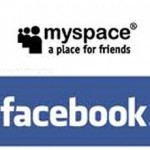 Beijing, China — Aiming to capture market share from arch rival Google, global software behemoth Microsoft said search engine giant Google”s departure from the mainland has provided a good opportunity for the company to expand its Bing search engine in China. The company unfurled its adCenter advertising platform in China, an effort to seize some of the market share left by Google, which has been wrangling with Beijing over censorship, state media said Wednesday.
Beijing, China — Aiming to capture market share from arch rival Google, global software behemoth Microsoft said search engine giant Google”s departure from the mainland has provided a good opportunity for the company to expand its Bing search engine in China. The company unfurled its adCenter advertising platform in China, an effort to seize some of the market share left by Google, which has been wrangling with Beijing over censorship, state media said Wednesday.
By introducing adCenter advertising platform the Redmond Vole could enhance the prospects of its Bing search engine after Google pulled out of China’s mainland in March this year, said a China Daily report.
The US software titan’s adCenter will cater to Chinese exporters craving to advertise overseas, stated Anderson Liu, general manager of Microsoft’s domestic joint venture MSN China.
The roll out is intended at capturing the online advertising market share in China where companies have become cautious over going with Google, as the internet giant started redirecting all its mainland traffic to Hong Kong site.
“It is time to join the market and let Chinese advertisers have more choices,” Liu was quoted by the China Daily as saying.
AdCenter helps businesses place advertisements online such as on Microsoft’s Bing search engine. The product is similar to Google’s AdWords, Microsoft’s AdCenter provides pay-per-click advertisements. So far, the service has been introduced in the United States, Canada, the United Kingdom, France and Singapore, according to the company, said a report by People’s Daily Online.
Liu said that Microsoft anticipate revenue from the pay-per-click ads will account for half of MSN China’s business in the future. Established in May 2005, MSN China is a 50-50 joint venture between Microsoft and domestic investment firm Shanghai Alliance Investment.
In July, Google pulled itself away from two Chinese advertisers following its standoff with Beijing over censorship and cyberattacks the US search giant claims originated in China.
The companies Google separate from were “Universal Internet Media” and “Xi’an Weihua Network,” two major advertising agencies that operated in the eastern and northwestern China, the China Daily said, citing Marsha Wang, Google China spokeswoman.
To take advantage of the Google’s woes, Microsoft mainly intends to capture the international advertising from Chinese exporters with the rolling out of new adCenter services, the report said. Advertising activity from Chinese exporters encompasses a major part of China’s online search engine market and occupied 40 percent share in Google’s revenues, said the report quoting Analysys International.
Currently Microsoft is making alliance with Baidu to sell search engine advertising and the company clarifies that the new services will not hurt their tie-up. In the second quarter, Baidu held a search engine market share of more than 70 percent in China.
“Actually I think it is a very good opportunity for MSN China,” said the report quoting Edward Yu, president of Analysys International.
In March, a team of 27 Chinese advertising agencies delivered Google a letter calling for talks over indemnification for possible business losses amid the censorship wrangle.
Google China spokeswoman Wang declined to comment on MSN China’s latest move, reiterating that Google would continue to provide services for Chinese advertisers.


